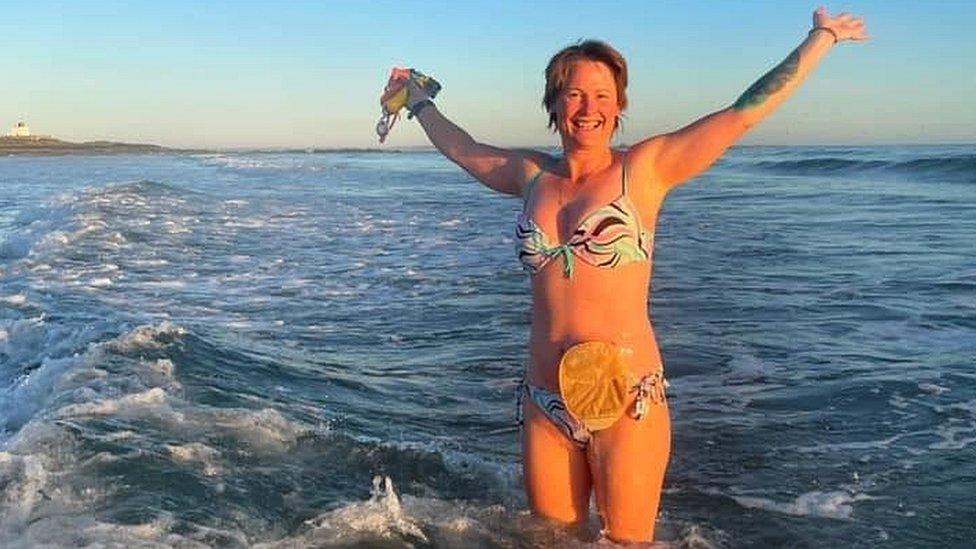'Climbing Kilimanjaro proved stomas won't stop us'
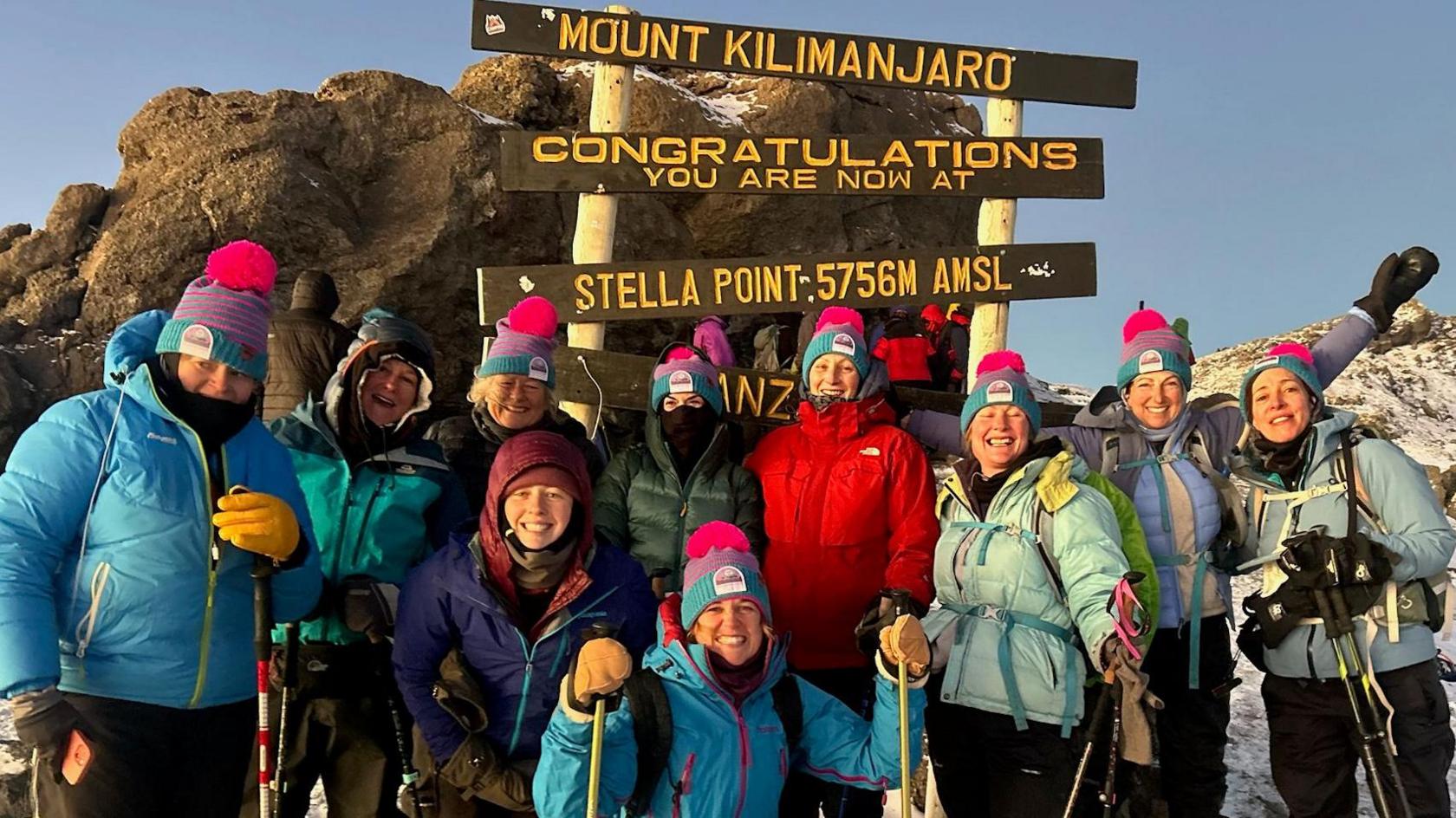
Gill Castle said her team of women proved people with stomas could do anything
- Published
Climbing Mount Kilimanjaro would be a challenge for anyone, but for Gill Castle, who has a stoma, and her group of women, it was extra tough. How did they find it?
As she scaled the slopes of Africa's highest mountain, Gill's thoughts focused on her father.
Two weeks before her trip, Bob Harrison, her biggest cheerleader, died from cancer.
"I felt close to Dad because I was high up," Gill from Alnwick, Northumberland, says.
"I think lack of sleep and the altitude just tipped me over the edge and I just wanted to rip my heart out and sob, but I had to keep going.
"So I had a bit of a moment and got myself back together and reached the summit, and I did that for Dad I think.
"He always had supreme confidence in my ability to do anything and actually that helped me get to the top of the mountain."
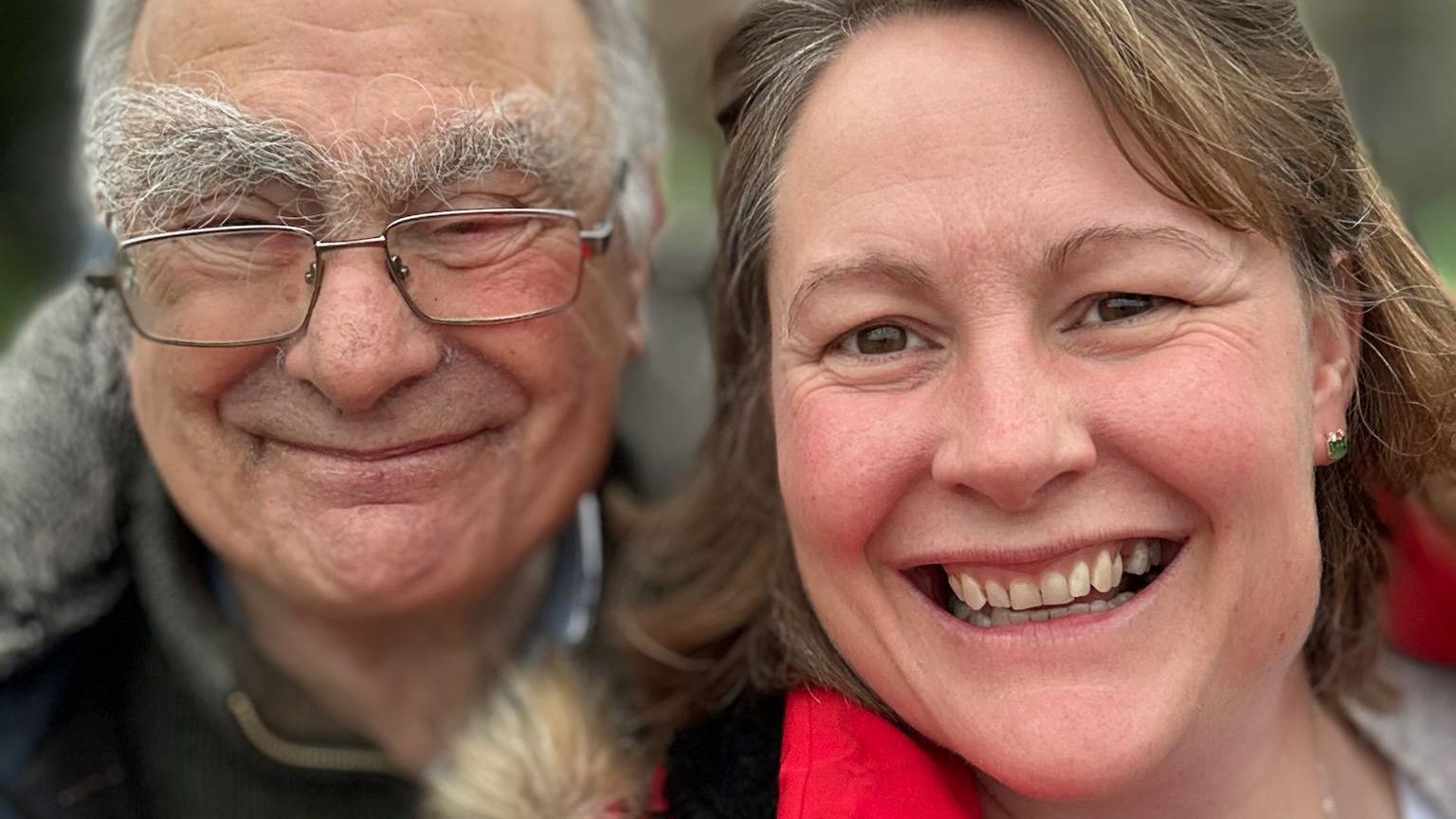
Gill said her father was her biggest cheerleader
Gill, 46, is no stranger to physical endurance. In 2023, she became the first person fitted with a stoma to swim across the English Channel.
She has had the stoma since 2011, a colostomy bag the result of major injuries caused during the birth of her son Sam.
Gill came up with the idea of climbing Kilimanjaro to raise money for her charity, Chameleon Buddies, which helps women in Kenya who have stomas but not the same access to medical supplies or treatment she had.
The 16 women joining her on the trek - some of of whom also had stomas or had experienced birth trauma - had to take precautions to try to stay on top of the medical issues many of them had.
"There was just so much fear about what was ahead," Gill says.
"This group was comprised of people that had more challenges than most people would taking on a challenge like this, which is a challenge in its own right."
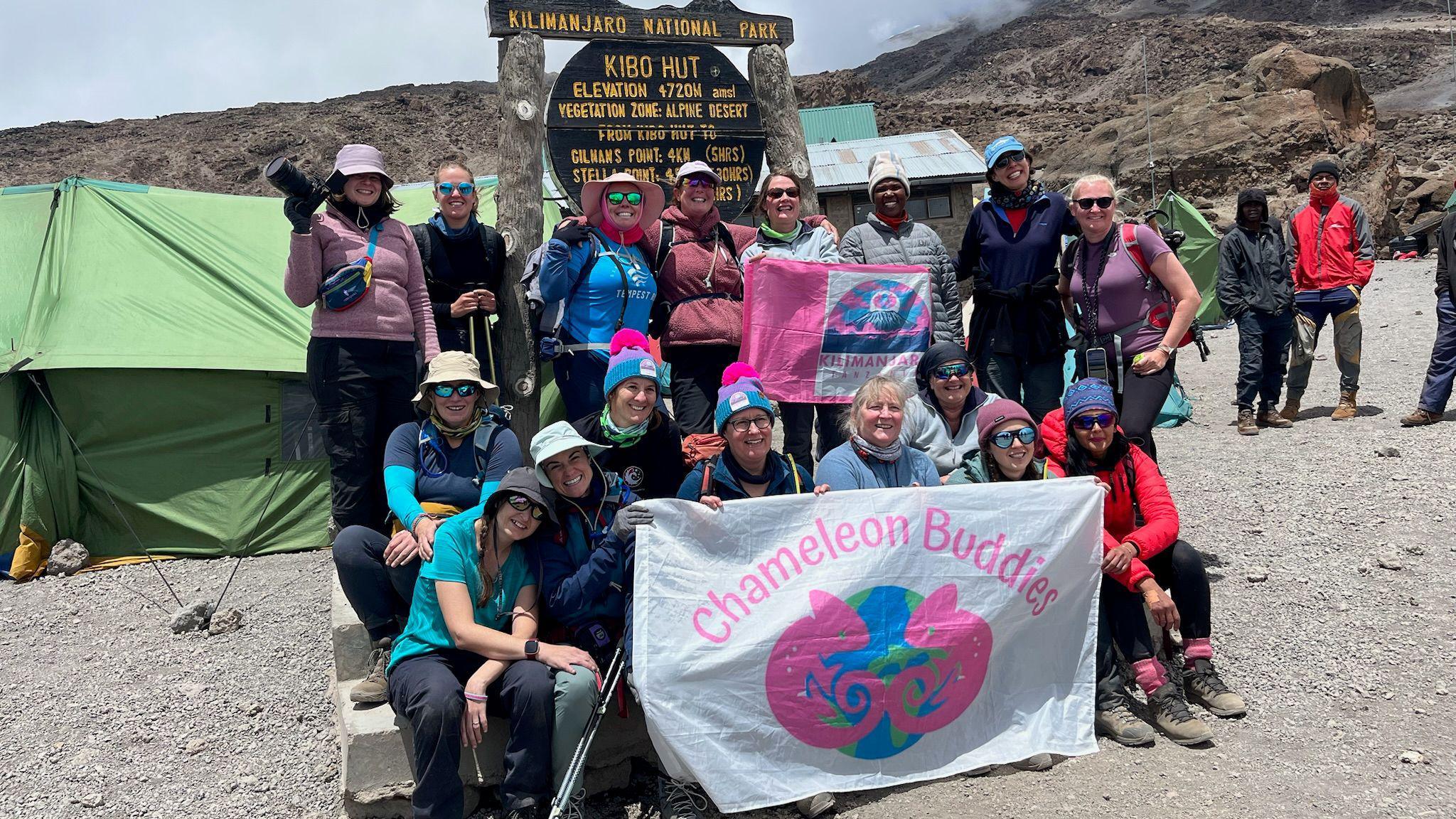
Sixteen women joined Gill on her trek up Kilimanjaro
She points to footage of the women as they prepared to walk, singling out Julia who was adding extenders to her colostomy bag to give extra protection against leaks.
"You can't really describe what that's like," Gill says. "The knowledge that you could all of a sudden be ending up with poo all over your clothes and your body and not have a way to shower and change properly."
The altitude also led to excess wind getting into the stoma bags, causing them to puff up and rub on their skin and make walking uncomfortable.
"But the good thing was because there were quite a few of us with stomas, we were able to support each other so you didn't feel alone," Gill says.
As well as the problems they faced, the women had moments of exhilaration - like the moment they first saw the mountain.
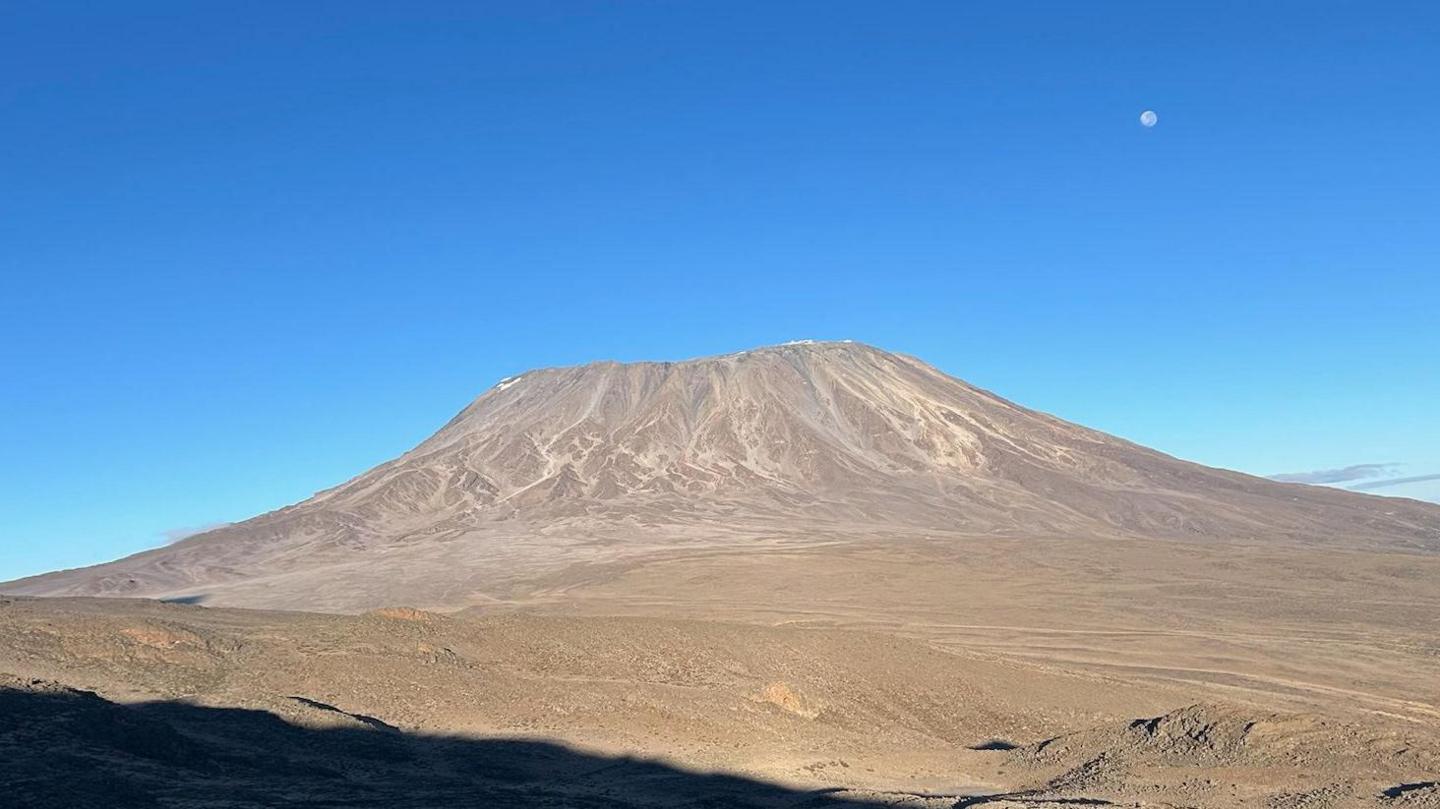
Kilimanjaro in Tanzania is the highest mountain in Africa
"We went around the corner and everyone actually started screaming because it was so clear, and everyone was really emotional because we were thinking 'wow, ok, that's where we're going, that's the top', so it was really exciting," Gill recalls.
The women walked in temperatures as warm as 30C (86F) in the daytime but when they reached the top it was -15C (5F).
Sixteen of the 17 women in the group made it to the summit, with one succumbing to altitude sickness.
"It's the most stunning place I have ever been in my life," Gill says. "You can see for miles and there's huge glaciers round the side."
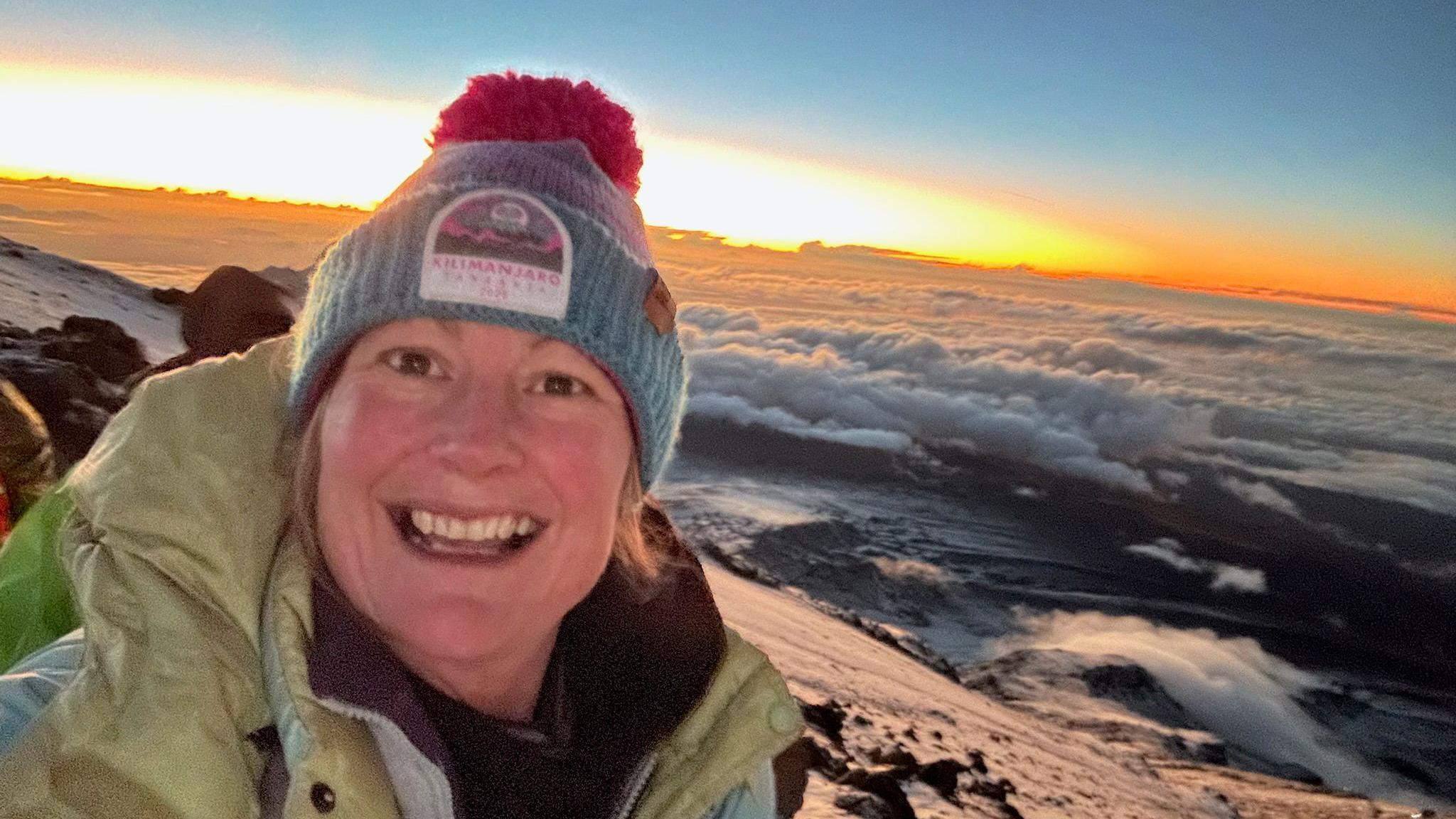
Gill said Kilimanjaro was the most stunning place she had seen
She says it was "just stunning".
"We'd already seen the sun rising as we were climbing up.
"A beautiful clear day.
"Everyone had so much pride in each other and the group as a whole.
"I always wanted this to be a group adventure and challenge and there's nothing like seeing a group of women together."
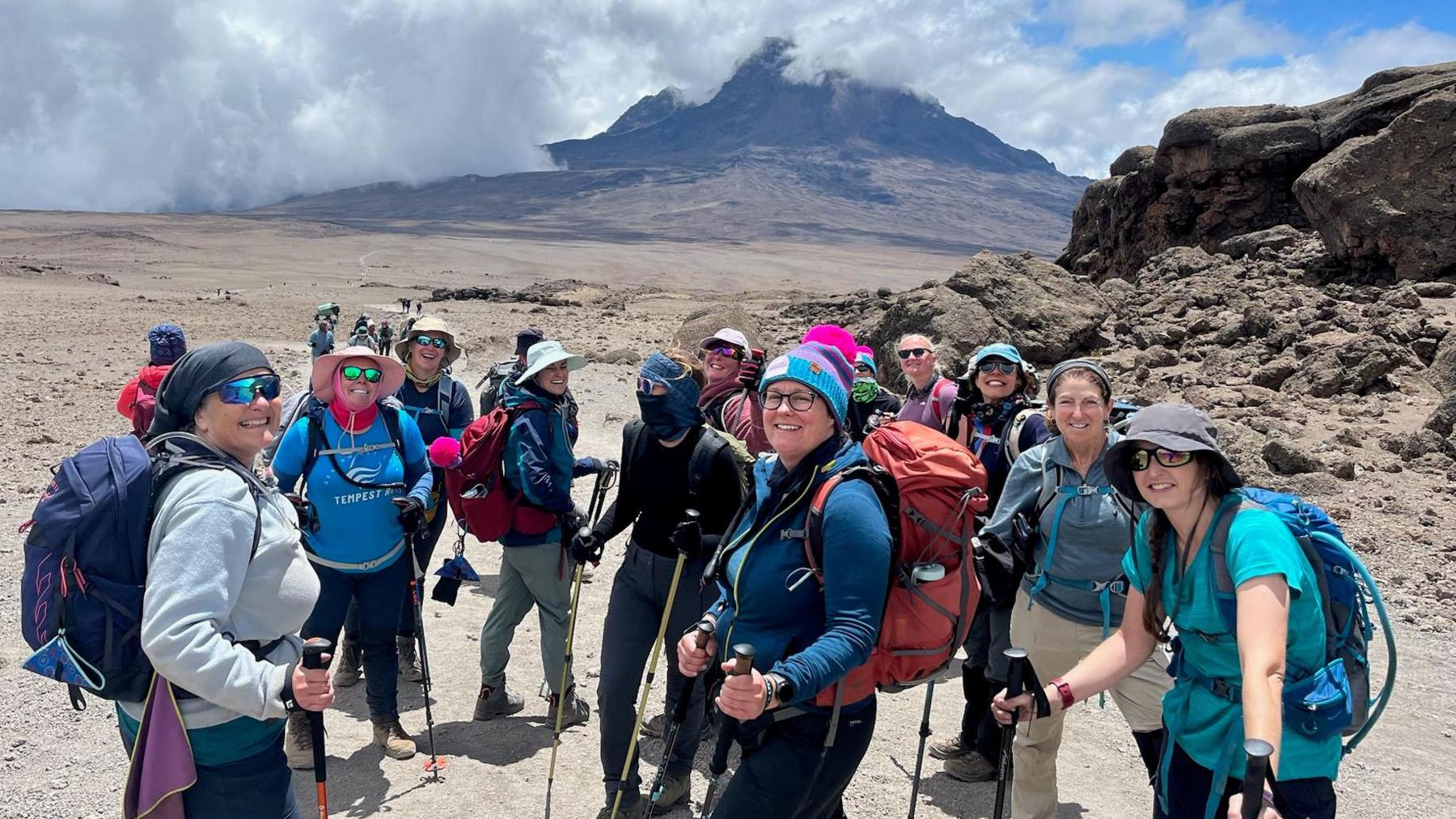
All but one of the group managed to get to the summit
After the challenge, some of the women went to the hospital in Eldoret, Kenya, where Gill's charity does its work.
"They put on a big celebration for us," Gill says.
"There was lots of dancing, lots of singing and the trekkers were able to meet the women they were supporting, see the hospital and the impact."
Also waiting to meet her after the trek was her son Sam, and she took him to meet one of the first women she had helped.
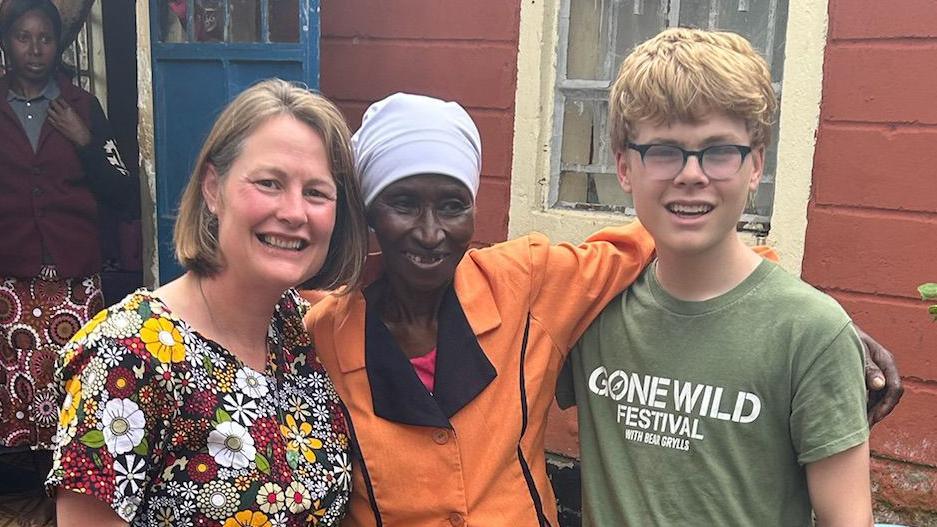
Gill introduced her son Sam to the women she is helping
"That for me is like a perfect circle," Gill says. "It was saying to my son 'you know this is what has happened as a result of your birth, not the bad stuff, this', and it was just so special."
Gill says this is the last big challenge she will take on and now plans to focus on the work of Chameleon Buddies.
When asked if she believes she has once again proved she can do anything despite the challenges she has faced, she replies: "I haven't proved that, the group have proved that.
"And this was the whole point, this was their opportunity to show people that you can do anything after trauma or with a stoma."
Once again her mind turns to her father.
"Dad would never have wanted me to pull out because of him, but it did make it very challenging mentally to try to keep that grief to one side," she says.
"I think it's the first big thing in my life that he hasn't been there to see and I know how much he wanted to see me do it.
"But I did it and I know he'd be really proud."
Follow BBC North East on X, external, Facebook, external, Nextdoor and Instagram, external.
Get in touch
Do you have a story suggestion for BBC North East & Cumbria?
- Published23 September
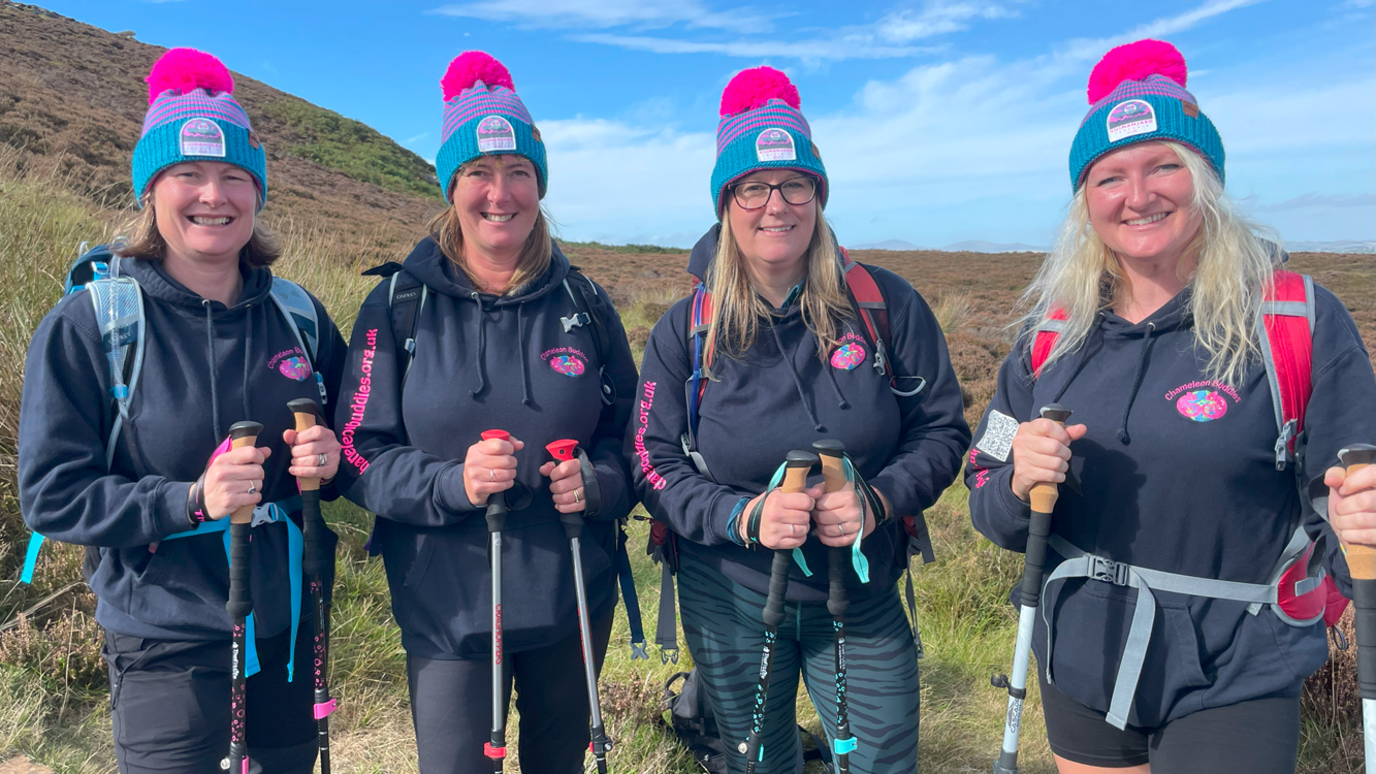
- Published12 September 2023
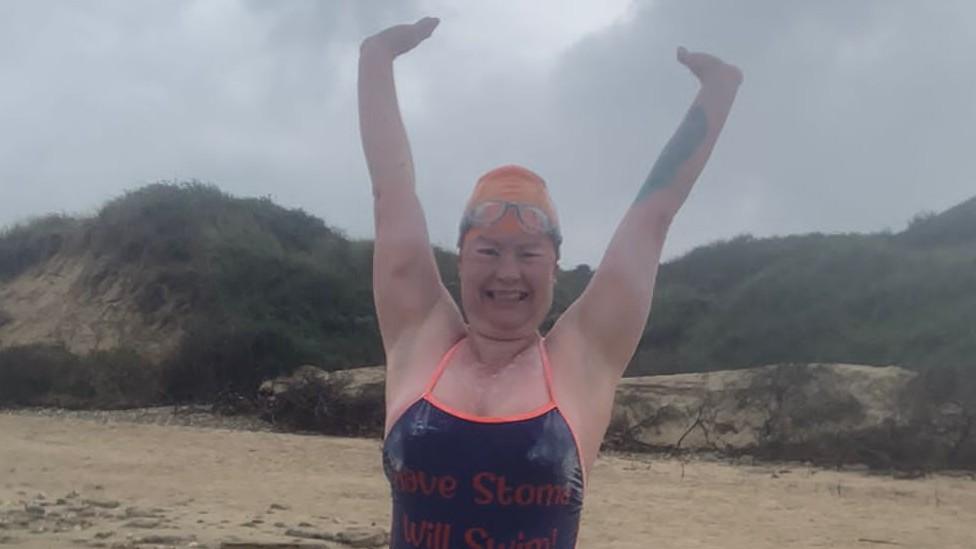
- Published14 August 2023
